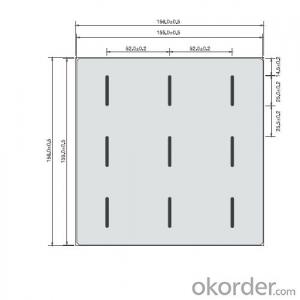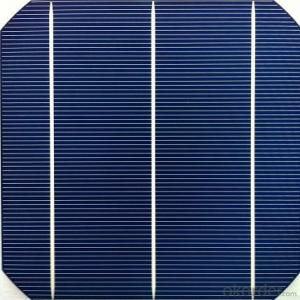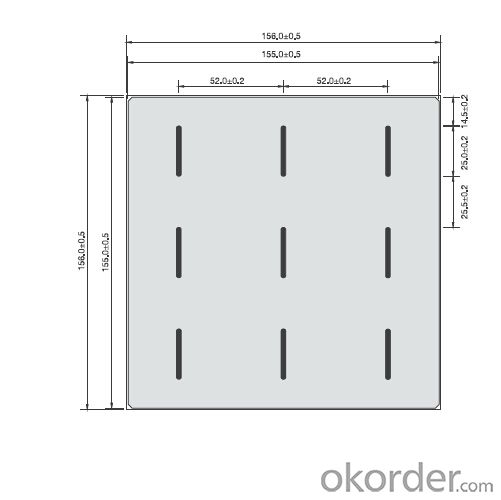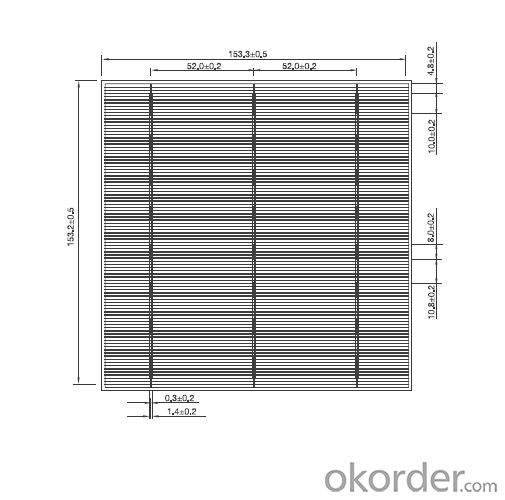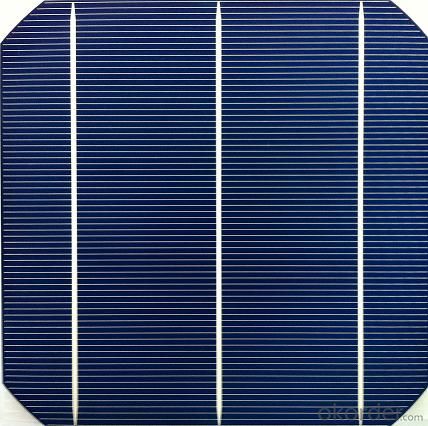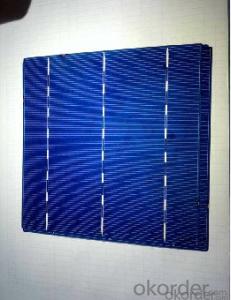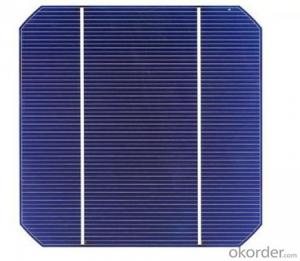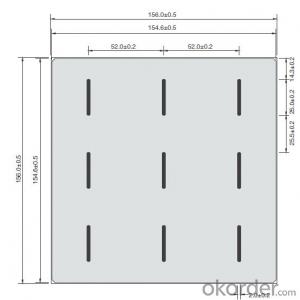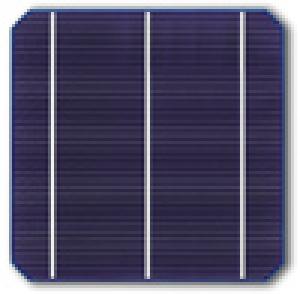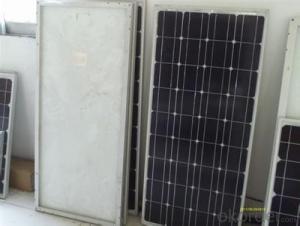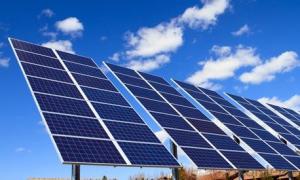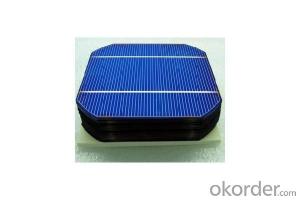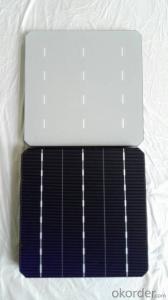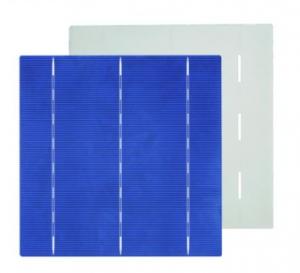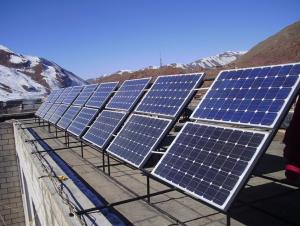Flexible Solar Cells for Sale - Mono Cell Jac M6SR-3 (Cypress2)
- Loading Port:
- China Main Port
- Payment Terms:
- TT OR LC
- Min Order Qty:
- -
- Supply Capability:
- -
OKorder Service Pledge
Quality Product, Order Online Tracking, Timely Delivery
OKorder Financial Service
Credit Rating, Credit Services, Credit Purchasing
You Might Also Like
JACM6SR-3 3BB CYPRESS2 MONO SOLAR CELL
JA solar's high effciency mono cell, manufacturing modules with more than 275W(6x10)and 325W(6x12)power putput becomes easier than ever.
Futures:
Format:156mmx156mm±0.5mm
thickness:210um±30um
Front:1.4mm bus bar(silver).blue anti-reflecting coating(silicon nitride)
back:2mm wide solding pads(silver)backsurface field(aluminum)
Data sheet
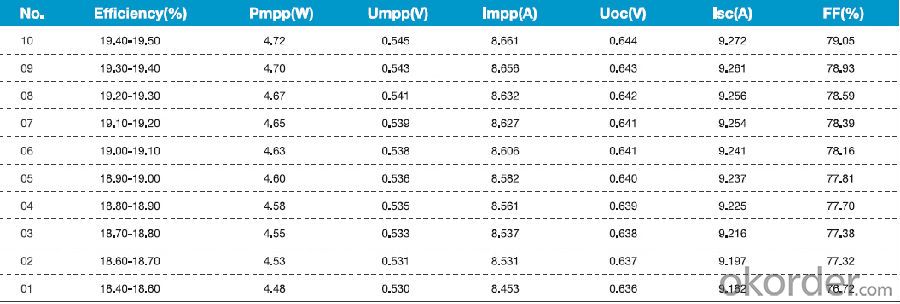
- Q: How do solar cells handle electrical surges or lightning strikes?
- Solar cells are designed to handle small electrical surges or fluctuations in the electrical current, but they are not specifically designed to protect against lightning strikes. In the event of a lightning strike, the solar cells can sustain damage due to the high voltage and current associated with the strike. However, some solar installations include lightning protection systems or surge arresters that can help mitigate the risk of damage caused by lightning strikes.
- Q: Can solar cells be used in aircraft applications?
- Yes, solar cells can be used in aircraft applications. Solar cells have been integrated into various aircraft designs, including drones and solar-powered airplanes. They are used to capture sunlight and convert it into electricity, which can be used to power the aircraft's electrical systems or recharge its batteries. Solar cells offer a renewable and sustainable source of energy, reducing the reliance on traditional fossil fuels and making aircraft more environmentally friendly.
- Q: Can solar cells be used to charge electric vehicles?
- Yes, solar cells can be used to charge electric vehicles. Solar panels can convert sunlight into electricity, which can then be used to charge the batteries of electric vehicles. This process, known as solar charging or solar-powered charging, is an environmentally friendly and sustainable way to power electric vehicles.
- Q: What is the difference between solar cells and solar panels?
- Solar cells and solar panels are closely related but have some key differences. A solar cell refers to a single unit that converts sunlight into electricity through the photovoltaic effect. It is the basic building block of a solar panel. On the other hand, a solar panel, also known as a photovoltaic module, is made up of multiple interconnected solar cells. The purpose of a solar panel is to harness a larger amount of sunlight and generate a higher output of electricity. In summary, while a solar cell is the individual component that directly converts sunlight into electricity, a solar panel is a collection of interconnected solar cells that work together to produce a higher power output.
- Q: How are solar cells connected in a photovoltaic system?
- Solar cells are connected in a photovoltaic system through series and parallel connections to form strings and modules, which are then connected to inverters to convert the generated DC electricity into AC electricity for use in homes or businesses.
- Q: What is the impact of solar cell installations on local economies?
- The impact of solar cell installations on local economies is generally positive. These installations create jobs, both in the manufacturing and installation sectors. They also attract investments and stimulate economic growth by reducing energy costs for businesses and households. Additionally, solar installations contribute to reducing greenhouse gas emissions, improving air quality, and promoting sustainable development in the long run.
- Q: Can solar cells be used in sports stadiums or arenas?
- Yes, solar cells can be used in sports stadiums or arenas. They can be installed on the roof or integrated into the facade to harness solar energy and generate electricity. This renewable energy source can help power the stadium's operations, reducing reliance on traditional energy sources and decreasing carbon emissions.
- Q: Can solar cells be used in underwater vehicles?
- Yes, solar cells can be used in underwater vehicles. However, due to the limited availability of sunlight underwater, the efficiency of solar cells is significantly reduced compared to their performance on the surface. Therefore, other power sources such as batteries or fuel cells are often used in conjunction with solar cells to provide continuous power to underwater vehicles.
- Q: Can solar cells be used in aviation or aerospace applications?
- Yes, solar cells can be used in aviation or aerospace applications. They are commonly used in satellites and space probes to generate electrical power from sunlight. Additionally, solar cells can be integrated into the wings or fuselage of aircraft to provide a sustainable source of energy, reducing reliance on fossil fuels and extending flight time.
- Q: Can solar cells be used in power plants?
- Yes, solar cells can be used in power plants. Solar power plants, also known as solar farms or solar parks, use arrays of solar panels or solar cells to convert sunlight into electricity on a large scale. These solar power plants can generate significant amounts of renewable energy and contribute to reducing greenhouse gas emissions.
Send your message to us
Flexible Solar Cells for Sale - Mono Cell Jac M6SR-3 (Cypress2)
- Loading Port:
- China Main Port
- Payment Terms:
- TT OR LC
- Min Order Qty:
- -
- Supply Capability:
- -
OKorder Service Pledge
Quality Product, Order Online Tracking, Timely Delivery
OKorder Financial Service
Credit Rating, Credit Services, Credit Purchasing
Similar products
Hot products
Hot Searches
Related keywords
